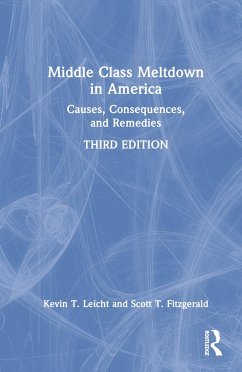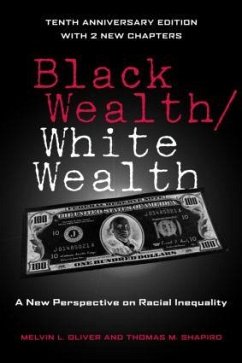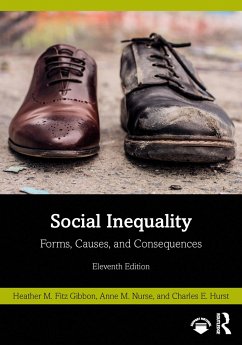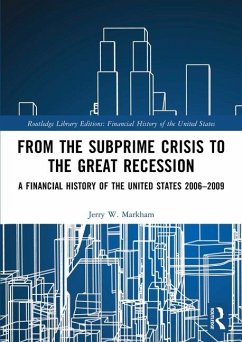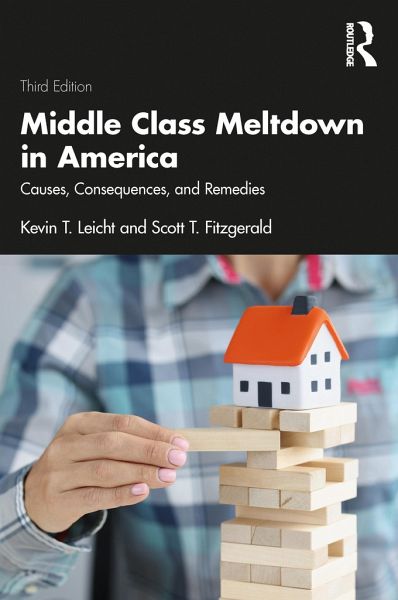
Middle Class Meltdown in America
Causes, Consequences, and Remedies
Versandkostenfrei!
Versandfertig in 6-10 Tagen
41,99 €
inkl. MwSt.

PAYBACK Punkte
21 °P sammeln!
Based on income alone, nearly half of all adults in the United States can be considered "middle class," complete with the reassurance of a steady job, the ability to raise a family, and the comforts of owning a home. And yet, for many, because of structural forces reshaping the finances of the American middle class, the margin between a stable life and a fragile one is narrowing.The new edition of Middle-Class Meltdown in America: Causes, Consequences, and Remedies tells the story of the struggling American middle class by weaving together sociological and economical research, personalized por...
Based on income alone, nearly half of all adults in the United States can be considered "middle class," complete with the reassurance of a steady job, the ability to raise a family, and the comforts of owning a home. And yet, for many, because of structural forces reshaping the finances of the American middle class, the margin between a stable life and a fragile one is narrowing.
The new edition of Middle-Class Meltdown in America: Causes, Consequences, and Remedies tells the story of the struggling American middle class by weaving together sociological and economical research, personalized portraits and examples, and a profusion of current data illustrating significant social, economic, and political trends. The authors extend their analysis to include the COVID-19 pandemic, a focus on the effect of race and ethnicity, as well as the ever-increasing costs of housing, health care, and education.
In clear, accessible writing, the authors provide a sociological and balanced understanding of the causes and implications of increasing middle class precarity. Middle-Class Meltdown in America is particularly well-suited for courses in sociology, economics, political science, anthropology, and American Studies.
The new edition of Middle-Class Meltdown in America: Causes, Consequences, and Remedies tells the story of the struggling American middle class by weaving together sociological and economical research, personalized portraits and examples, and a profusion of current data illustrating significant social, economic, and political trends. The authors extend their analysis to include the COVID-19 pandemic, a focus on the effect of race and ethnicity, as well as the ever-increasing costs of housing, health care, and education.
In clear, accessible writing, the authors provide a sociological and balanced understanding of the causes and implications of increasing middle class precarity. Middle-Class Meltdown in America is particularly well-suited for courses in sociology, economics, political science, anthropology, and American Studies.





